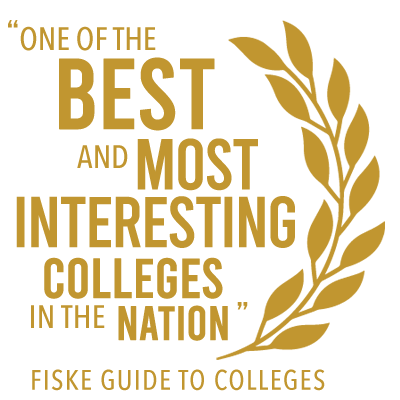The Virginia Standards of Learning and the Greek Play
We are pleased to offer an opportunity for teachers throughout Virginia to enrich the classroom experience and give some life to SOL preparation. The Randolph College Greek Play provides direct contact with the ancient world, an immediate experience of literature, and vibrant evidence of the ongoing power of drama.
The information below was culled from the Virginia Department of Education SOL website. There are good excuses for third graders on up to come to see our play. We welcome comments and corrections.
History and Social Science |
|
| Grade Three | The standards for third grade students include an introduction to the heritage and contributions of the people of ancient Greece . . . |
| History 3.3 The student will explain how the contributions of ancient Greece and Rome have influenced the present world . . . | |
| Geography 3.1.b) explaining how the people of Greece. . . adapted to and/or changed their environment to meet their needs. | |
| Grade Eight | WHI.5 The student will demonstrate knowledge of ancient Greece in terms of its impact on Western civilization by |
| b) describing Greek mythology and religion; | |
| d) characterizing life in Athens during the Golden Age of Pericles; | |
| f) citing contributions in drama, poetry, history, sculpture, architecture, science, mathematics, and philosophy, with emphasis on Socrates, Plato, and Aristotle | |
English |
|
| Grade Seven | 7.5 Reading: The student will read and demonstrate comprehension of a variety of fictional texts, literary nonfiction, poetry, and drama. |
| Grade Nine | 9.4 Reading: The student will read, comprehend, and analyze a variety of fictional texts including narratives, literary nonfiction, poetry, and drama. |
| Grade Ten | 10.4 The student will read, comprehend, and analyze literary texts of different cultures and eras. |
| Grade Eleven | 11.3.e Explain the meaning of literary and classical allusions and figurative language in text. 11.4.j Analyze the use of dramatic conventions in American literature. |
| Grade Twelve | 12.4.g Evaluate how dramatic conventions contribute to the theme and effect of plays from American, British, and other cultures. |
Latin — all levels |
|
| Interacting in School and Global Communities | LI.8 The student will begin to apply knowledge of the Latin language and Roman culture beyond the classroom setting to explore recreational, educational, and occupational opportunities. |
| LII.7 The student will apply knowledge of the Latin language and Roman culture in opportunities beyond the classroom setting for recreational, educational, and occupational purposes. | |
| LIII.7 The student will continue to apply knowledge of the Latin language and Roman culture beyond the classroom setting for recreational, educational, and occupational purposes. | |
| LIV.7 The student will apply knowledge of the Latin language and culture in opportunities beyond the classroom setting for recreational, educational, and occupational purposes. 1. Identify applications of Latin and Roman culture found in media, entertainment, and occupations. 2. Locate and use resources, such as technology, individuals, organizations, and institutions, to enhance cultural understanding. |
|
| Cultural Perspectives, Practices, and Products | LI.3 The student will develop an awareness of perspectives, practices, and products of Roman culture. 1. Identify and investigate practices in Roman life, such as those related to family, education, occupations, religion, and social structure. 2. Examine products of the Roman peoples, such as food, clothing, buildings, and art. 5. Participate in simulated cultural activities, such as family celebrations, banquets, and festivals. |
| LII.3 The student will demonstrate understanding of the perspectives, practices, and products of Roman culture and the ways these cultural aspects are interrelated. 1. Describe cultural practices of theRomans, such as weddings and funerals, leisure activities, games, entertainment, and meals. 3. Examine how the practices and perspectives of the Romans were influenced by interaction with other Mediterranean cultures. |
|
| LIII.3 The student will examine interrelationships among the perspectives, practices, and products of Roman civilization. 1. Understand that literary and non-literary products reflect practices and perspectives of the Roman world. |
|
| LIV.3 The student will discuss how various perspectives reflect the practices and products of the Roman world. 1. Analyze perspectives and practices of Roman culture in literature, including evidence of philosophy, religion, mythology, and personal conduct. |
|
Theatre Arts
For all levels of the Theatre Arts, a trip to see the Randolph College Greek Play responds to these SOL strands:
Critical Thinking and Communication
Students analyze theatrical works and dramatic literature when they describe works using appropriate vocabulary, classify properties of works in a variety of ways, compare and contrast aspects of theatrical works, and recognize properties and characteristics. Students interpret the work of self and others for messages and meaning. Evaluating the work of self and others allows students to deeply apply content knowledge and to develop informed responses. Students recognize and articulate personal attitudes, preferences, and opinions regarding theatrical works. Students examine their opinions, attitudes, and beliefs, and recognize the value of learning about diverse responses of others.
History, Culture, and Citizenship
Students explore and understand cultural and historical influences of the work of self and others. Students identify the value, roles, and reasons for creating from the perspective of many time periods, people, and places. Students understand that theatre arts are integral to communities and cultures. Students identify and interact with theatre as a community member and citizen, developing a lifelong engagement with theatre as a supporter, advocate, creator, performer, and viewer. Students identify and understand ethical and legal considerations for engaging with theatrical resources and source materials responsibly.

